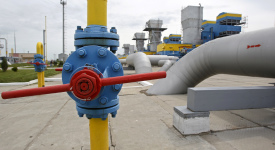EU Home Affairs Commissioner, Cecilia Malmstroem, said that the corruption across 28 member states costs about 120 billion EUR annually, which is equal to the entire EU budget for the same period. The Commissioner said that the actual number could be likely higher although the current estimate accounts for less than one percent of the block’s yearly output. According to the Brussels’ first ever anti-corruption report that is to be published bi-annually, public procurement and mysterious financing of political parties are among the main drivers of the problem.
Public procurement contracts are especially suspicious as their value amounts to one fifth of the EU’s output with about one fourth of that value being lost in corrupt practices. What is worse, about a third of the companies who lost their bids in public tenders report that they had lost due to corruption. Another pitfall – obscure financing of political parties – makes the lines between politics and business blurred.
The figure of 120 million has been computed using 2009 estimates from datasets of a number of international organizations such as the UN Global Compact or the Chamber of Commerce, which claim that the global corruption amounts to about 5 percent of the world’s GDP. Although the report does not rank the EU members according to their corruption-proneness and Commissioner Malmstroem also did not mention any particular countries, it is not a secret that Brussels is concerned especially about Romania and Bulgaria. Both countries are thought to “misuse” EU structural funds which is why Brussels has been monitoring them since their accession to the EU in 2007.
According to the EU, the main aim of the new report is to encourage member states to act on their own while no EU-supervised sanctions are foreseen. For instance, Brussels has recommended Bulgaria to protect anti-corruption institutions from any political influence as well as appoint their management in a transparent way.
Article Categories:
INSTITUTIONS & POLICY-MAKING





